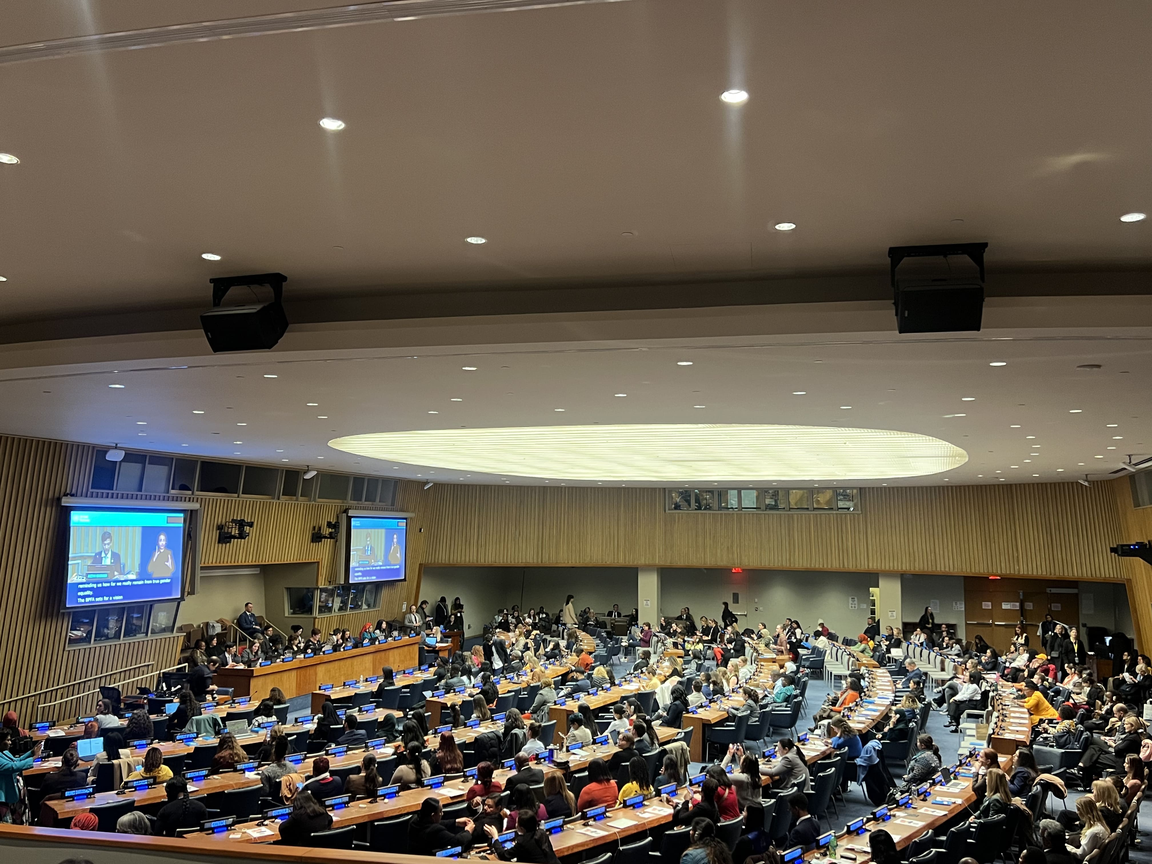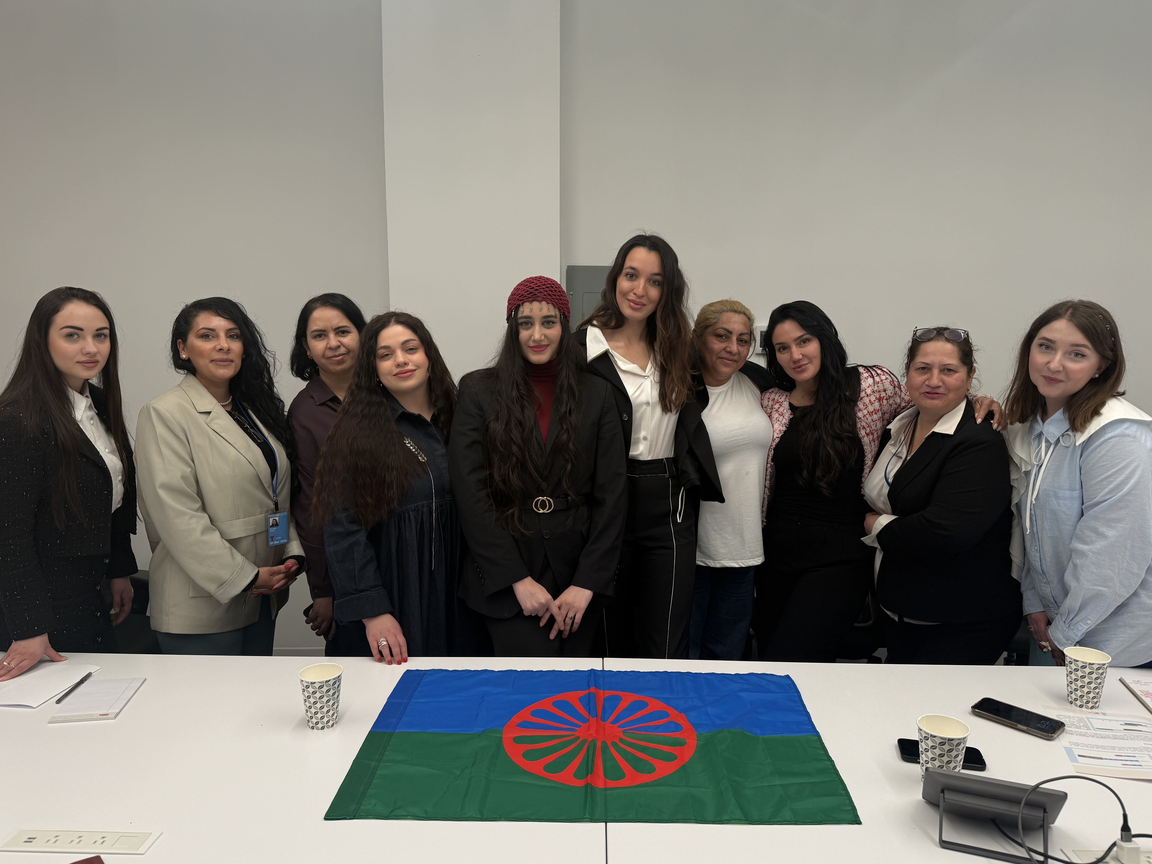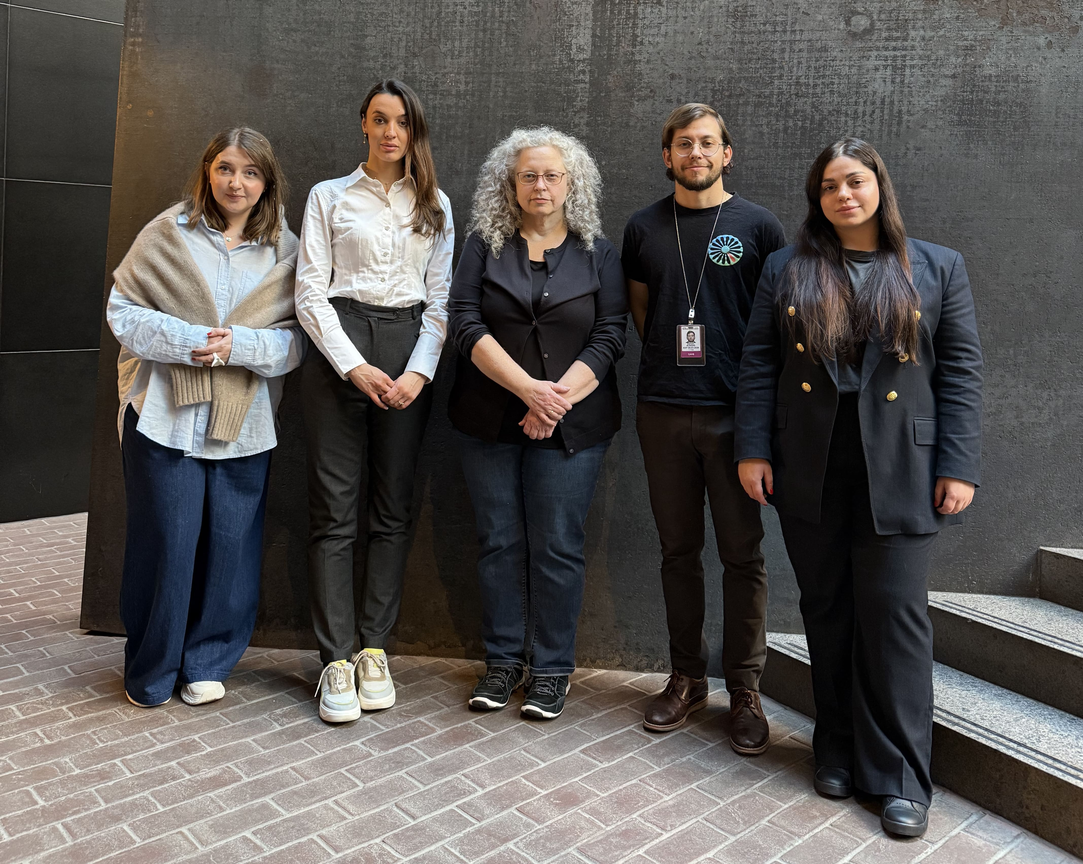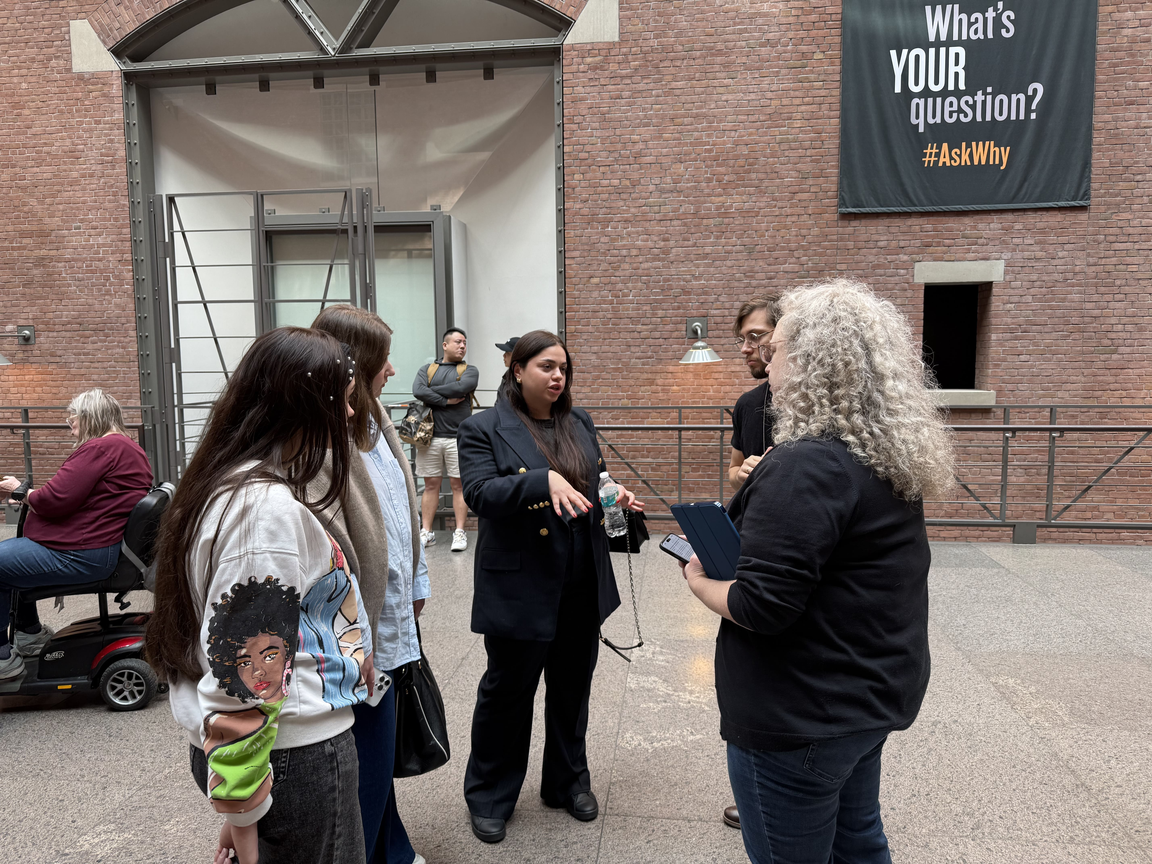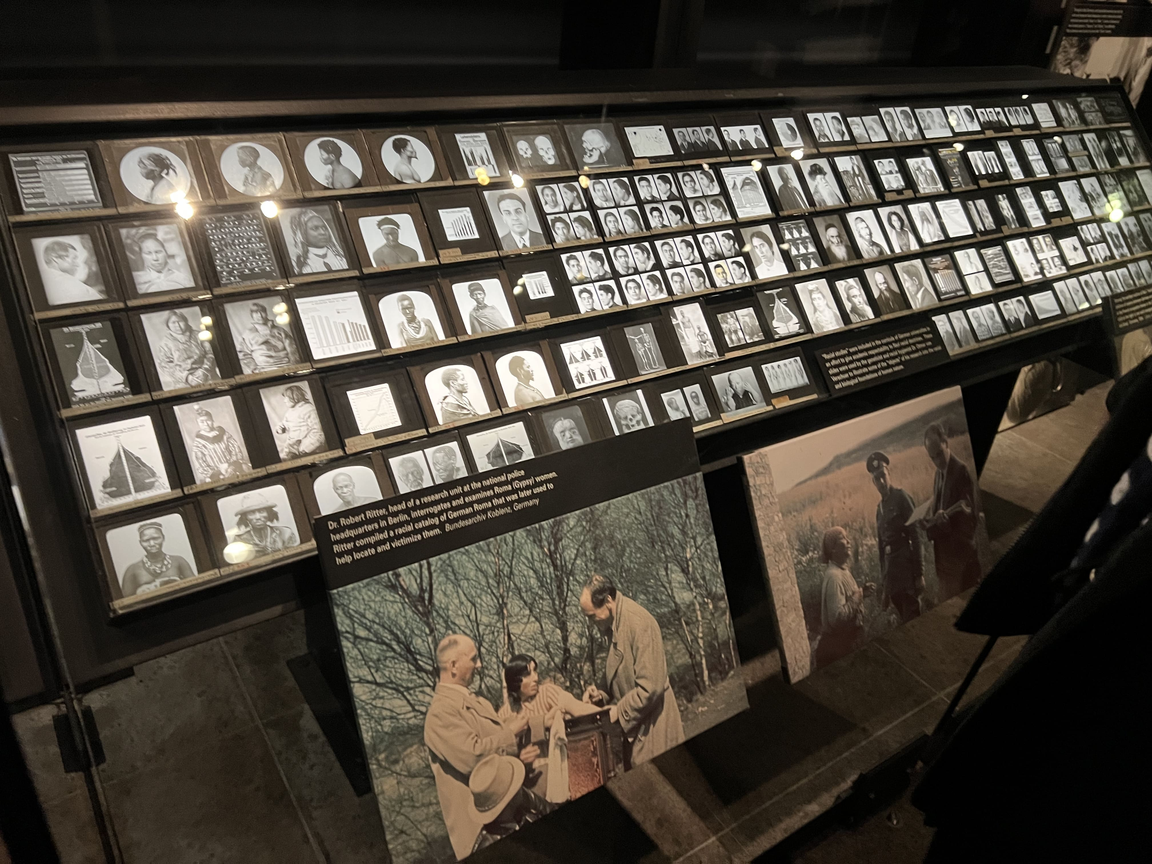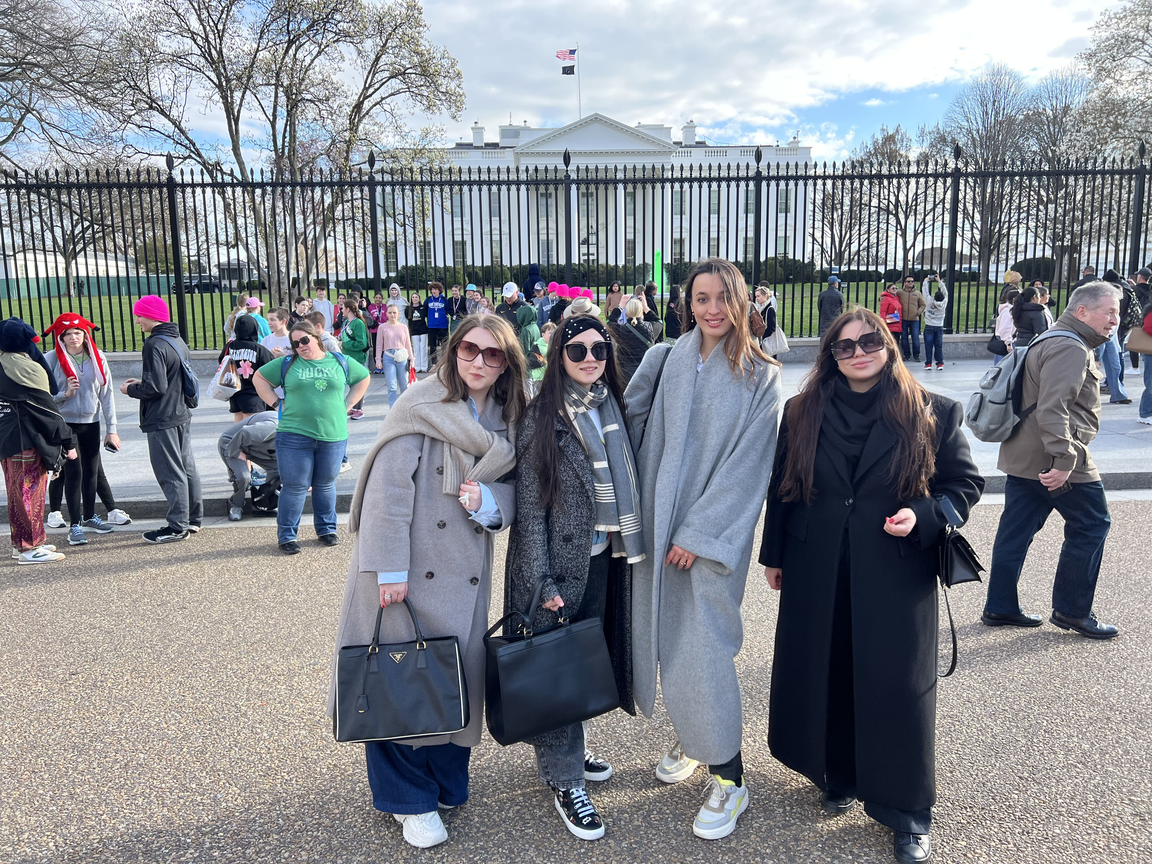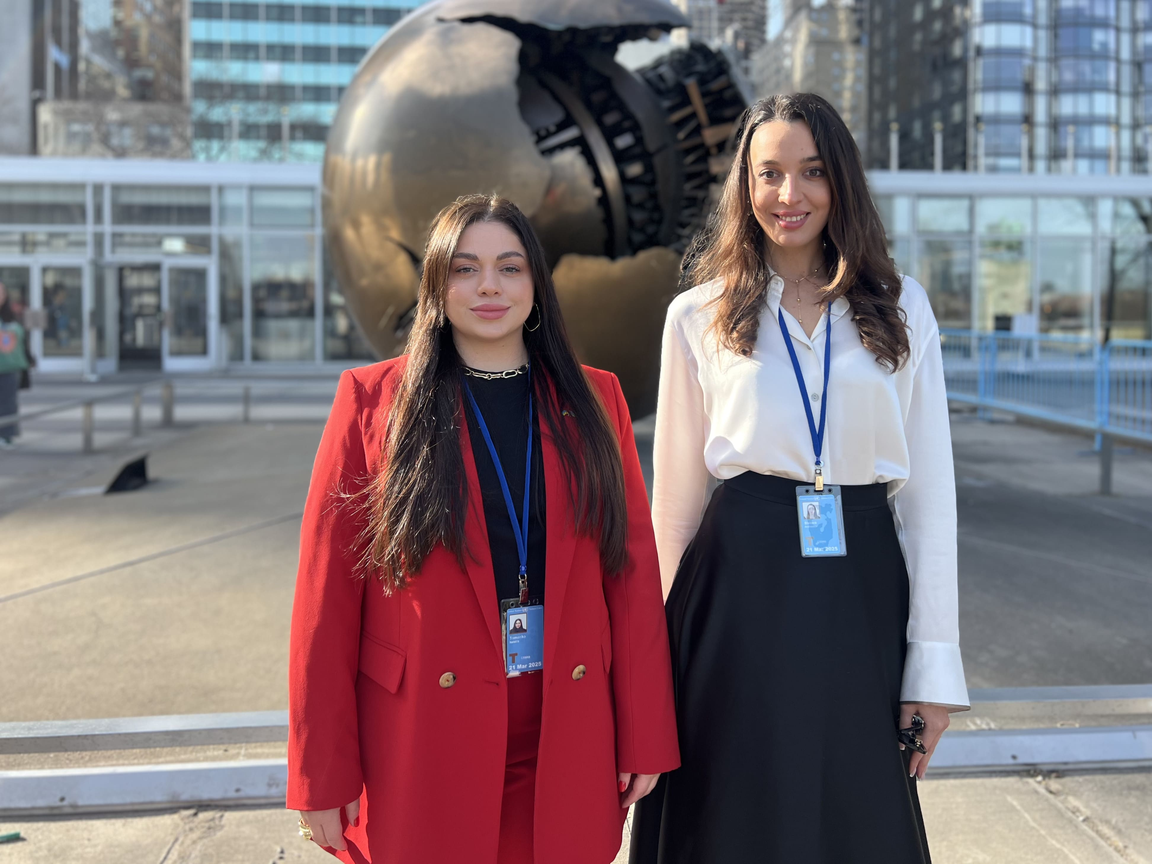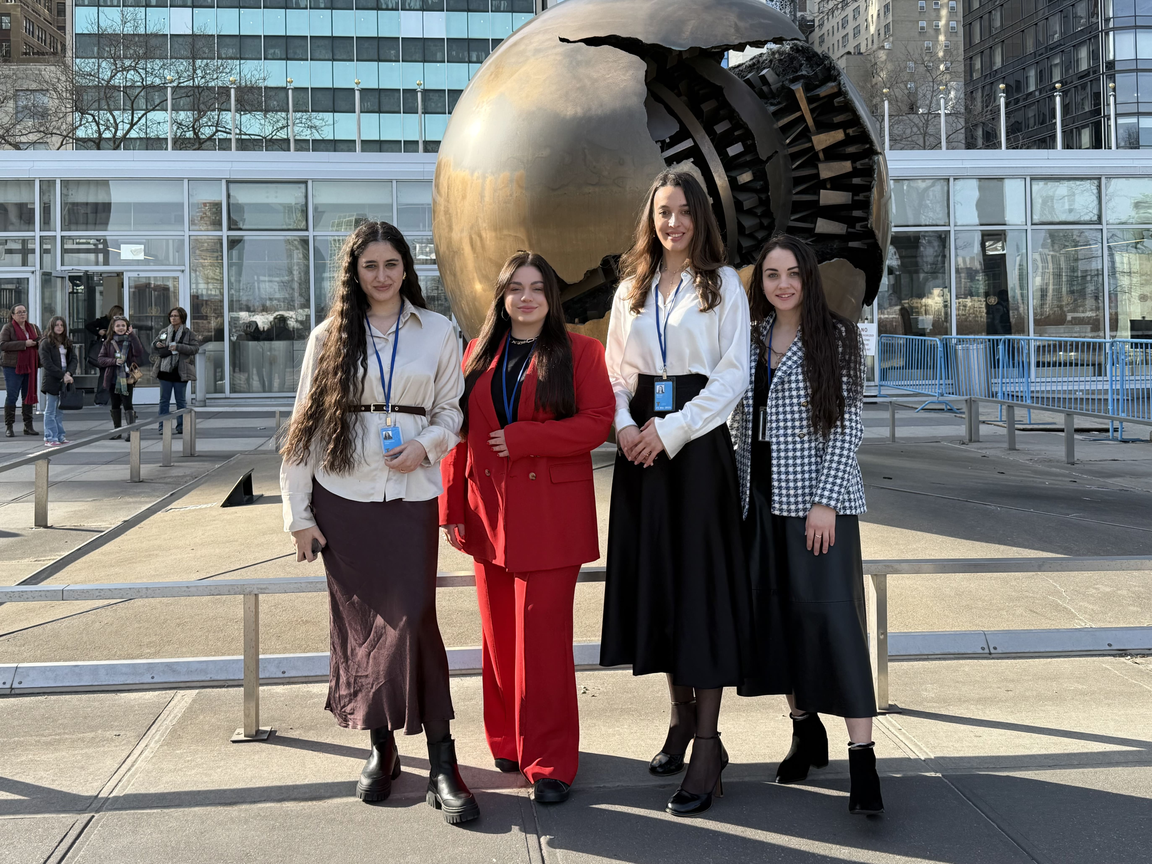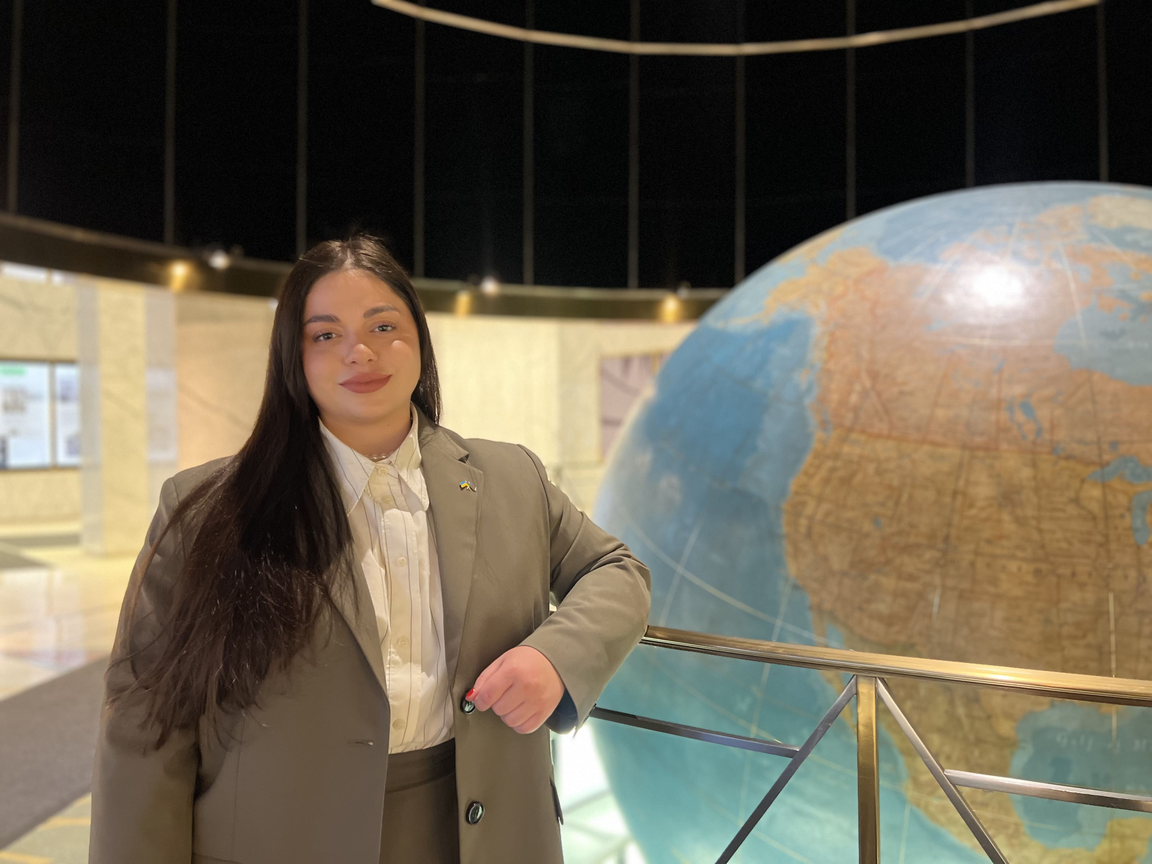Ukrainian Roma women spoke at the 69th UN session in New York. What did they say to the world?
In March 2025, Ukrainian Roma activists participated for the first time as a coordinated delegation in the 69th session of the UN Commission on the Status of Women. They became the voice not only for vulnerable population groups but also represented a new wave of women’s leadership emerging despite war and discrimination.
"Among Roma women, there are not only victims but also active actors of change in society," says Nataliia Tomenko, deputy director of the Youth Agency for the Advocacy of Roma Culture (ARCA). It was from a leadership position that the Ukrainian Roma delegation joined the annual forum at the UN headquarters — the 69th session of the UN Commission on the Status of Women (CSW69), a key international platform for discussing challenges and opportunities in the field of gender equality.
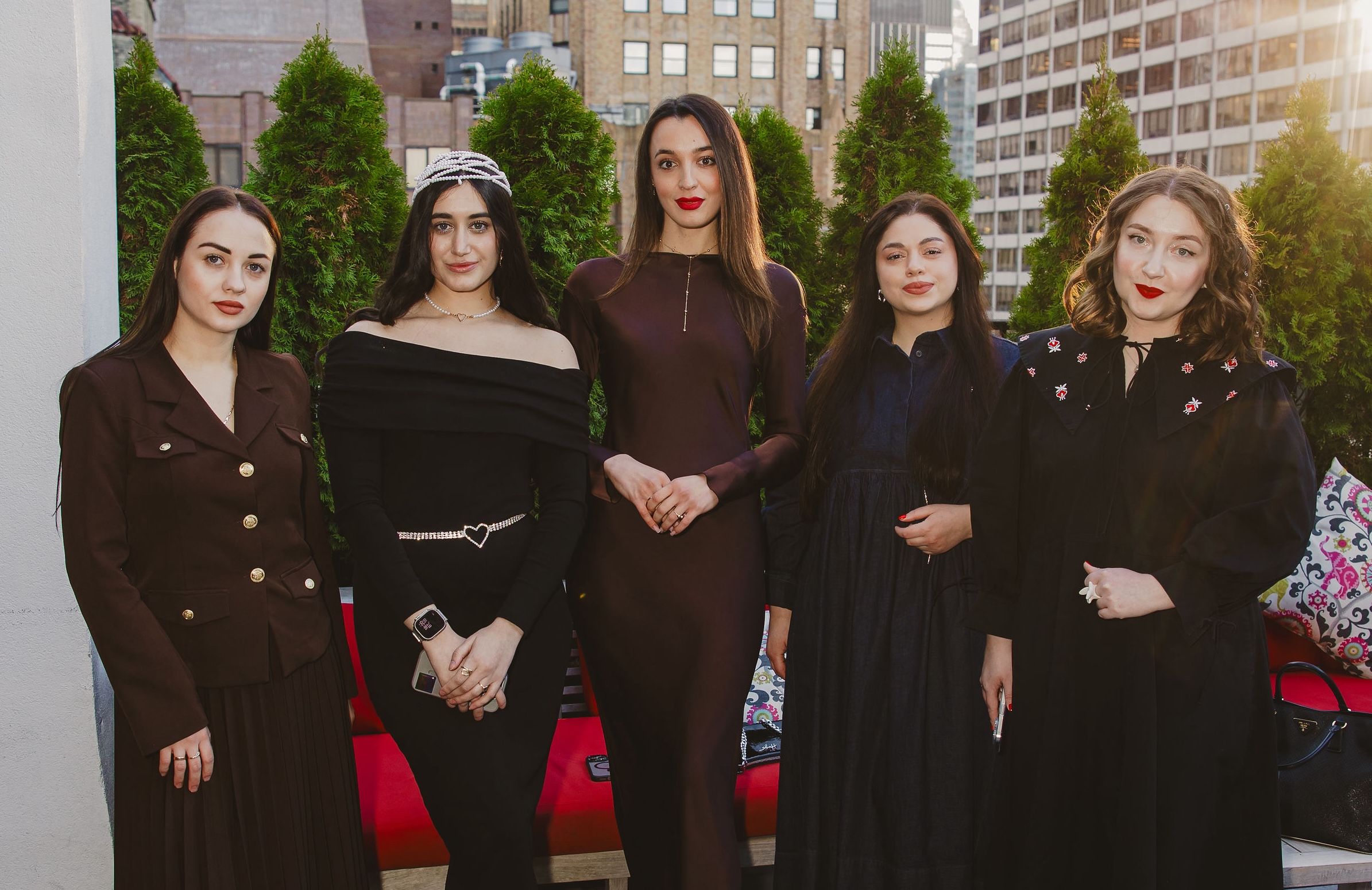 In the photo: a delegation of representatives of Ukrainian Roma NGOs. From left to right: Olga Kovalchuk - regional coordinator of the NGO “Voice of Romni”, Zinaida Prokopenko - blogger, representative of the CF “Winds of Change”, Angelika Belova - President of the NGO “Voice of Romni”, Natalia Tomenko - Deputy Director of the NGO “ARCA”, Lilia Zayets - Executive Director of the NGO “Voice of Romni”
In the photo: a delegation of representatives of Ukrainian Roma NGOs. From left to right: Olga Kovalchuk - regional coordinator of the NGO “Voice of Romni”, Zinaida Prokopenko - blogger, representative of the CF “Winds of Change”, Angelika Belova - President of the NGO “Voice of Romni”, Natalia Tomenko - Deputy Director of the NGO “ARCA”, Lilia Zayets - Executive Director of the NGO “Voice of Romni”
The Commission on the Status of Women gathered representatives of governments, state institutions, feminist organizations, and women's movements from around the world. For the first time in history, a coordinated group of Roma women from Ukraine joined this international platform.
The delegation included: Angelika Bielova, head of the public organization 'Voice of Romni', who led the delegation; executive director Liliya Zaiets; regional coordinator in Kryvyi Rih Olga Kovalchuk; Nataliya Tomenko (ARСA); and Zinaida Prokopenko from the charitable foundation 'Winds of Change'.
Although this year the Ukrainian Roma community was present in New York as an informal coalition of Roma organizations, the participants took part in panel discussions, partner meetings, and side events.
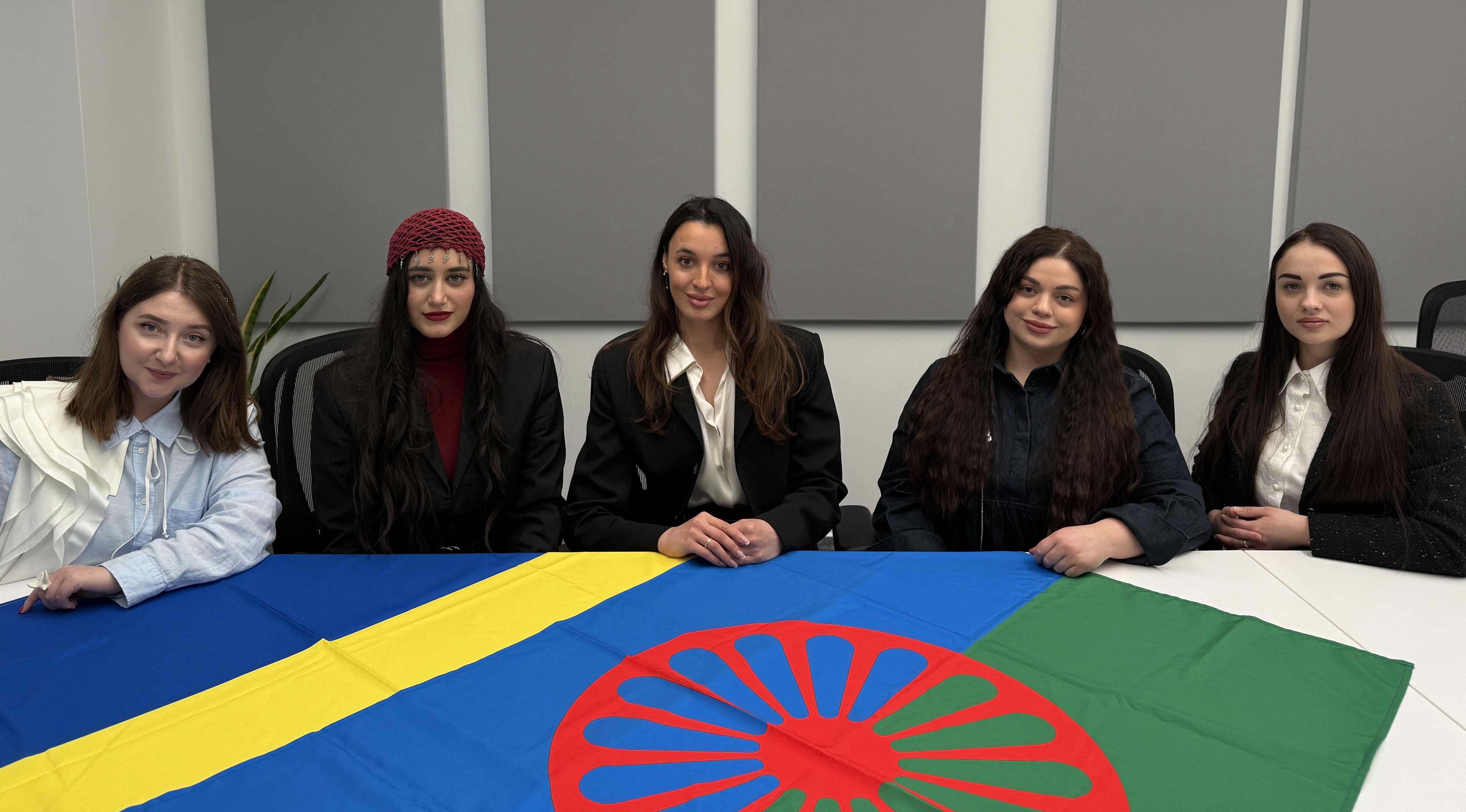 In the photo (from left to right): Liliya Zayets, executive director of the NGO “Voice of Romni”, Zinaida Prokopenko, representative of the CF “Winds of Change”, Angelika Belova, president of the NGO “Voice of Romni”, Natalia Tomenko, deputy director of the NGO “ARCA”, Olga Kovalchuk, regional coordinator of the NGO “Voice of Romni”.
In the photo (from left to right): Liliya Zayets, executive director of the NGO “Voice of Romni”, Zinaida Prokopenko, representative of the CF “Winds of Change”, Angelika Belova, president of the NGO “Voice of Romni”, Natalia Tomenko, deputy director of the NGO “ARCA”, Olga Kovalchuk, regional coordinator of the NGO “Voice of Romni”.
As Angelika Bielova emphasizes, it was their consistent grassroots work and commitment to women's rights that led to Ukrainian Roma women leaders becoming part of the international dialogue.
"We worked extensively with UN Women and the Women’s Peace and Humanitarian Fund — a fund that is part of the UN Women structure. Thanks to this partnership, I was nominated to speak at an official event — the Youth Interactive Dialogue — within the framework of the Commission on the Status of Women at UN Headquarters", says Bielova.
According to her, the format involved a moderator and five to six speakers, while the rest of the participants sat in the audience. This year’s session was chaired by Kateryna Levchenko, the Government Commissioner for Gender Policy.
For Bielova, this was her second visit to New York, but the first in such a format.
"Last year, I attended the session alone. It was my first experience, and although I had already visited the U.S. under the U.S. State Department’s IVLP exchange program, that time it felt exciting and somewhat daunting — without a team or official support. I organized all meetings with partners on my own, including with HIAS, Oxfam, Global Fund for Children... There was almost no coordination among Ukrainian participants; everyone acted individually", she recalls.
After returning from CSW68, Angelika Bielova, together with Nataliya Karbovska (Ukrainian Women’s Fund), Kateryna Levchenko, and other women leaders, discussed the need for coordination. This year, such coordination finally happened: Ukrainian women supported each other at events and attended key discussions together.
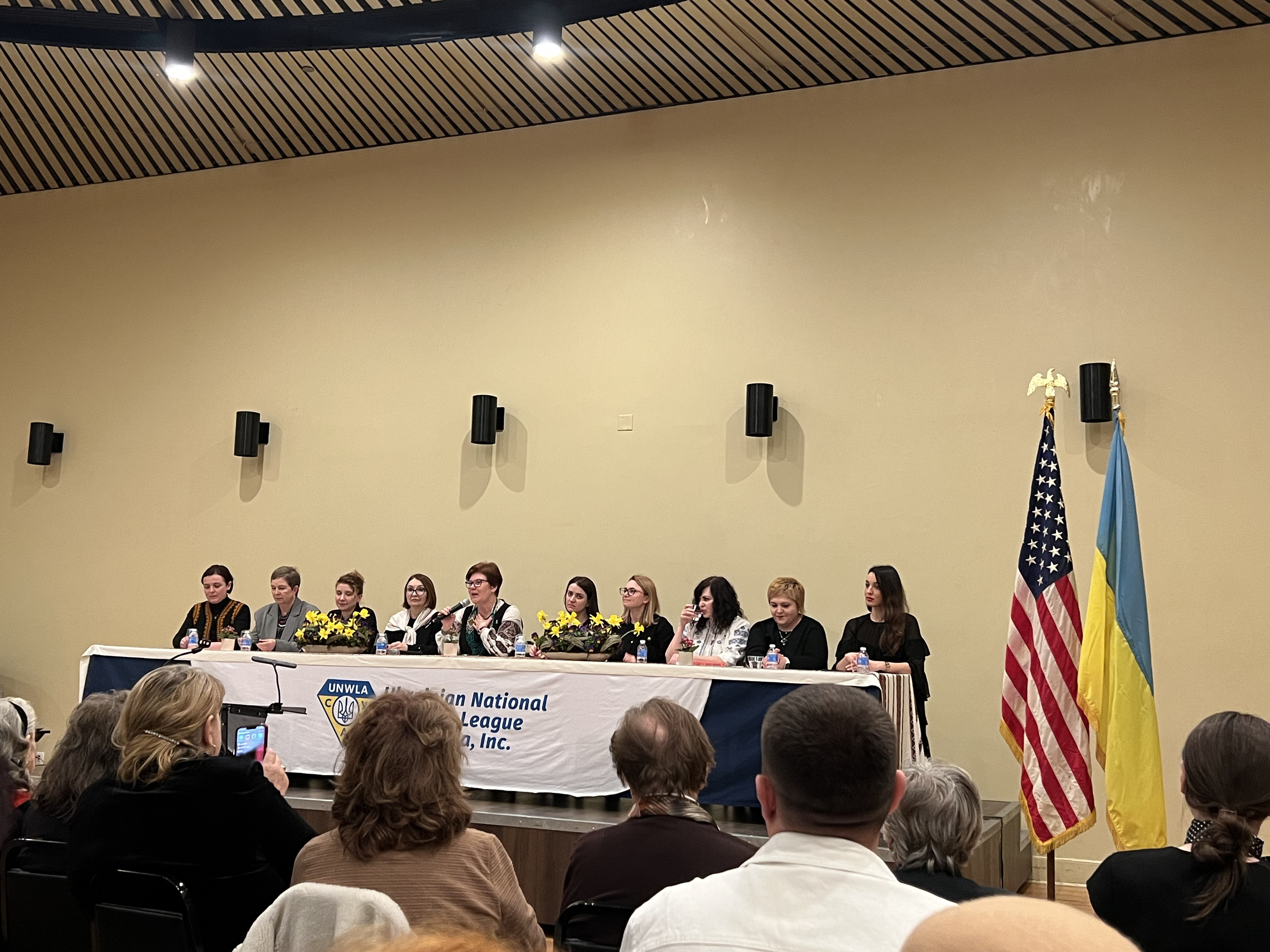 In the photo: a meeting of women leaders
In the photo: a meeting of women leaders
The key messages of the Ukrainian delegation were a call for a just peace for Ukraine and for support of women's civil society organizations — especially in light of the global funding crisis.
"We see that many programs supported by the U.S. State Department are being shut down — including in Ukraine. That’s why it was crucial for us to make the point that we, women in Ukraine, are on the front lines of humanitarian response, actively involved in the recovery process. We are living through war, supporting a huge number of affected people. And to continue this work, we critically need funding", Bielova stressed.
This message was reinforced through practical meetings with representatives of the United Nations, CARE, the EU Delegation, BMZ (Germany), the Global Fund for Children, and other organizations.
In her speeches, the activist also emphasized the so-called holistic approach practiced by Voice of Romni:
"When a person in a very vulnerable situation turns to us, they gradually follow a path — from receiving humanitarian aid to education, acquiring a profession, and gaining employment. We create a pathway to stability".
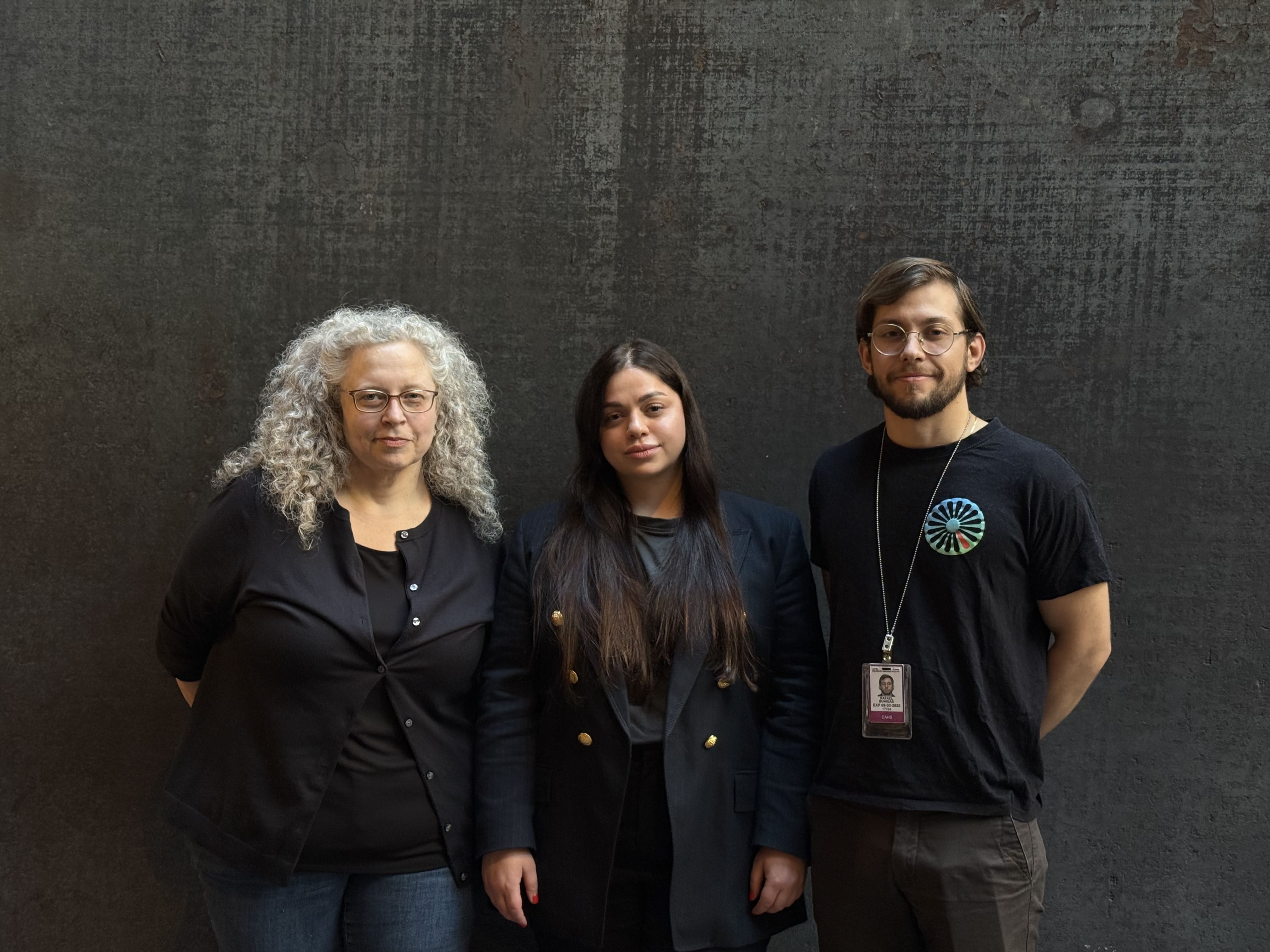 In the photo (from left to right): Krista Hegburg, Senior Program Director of International Academic Programs at the Mandel Center for Advanced Holocaust Studies; Natalia Tomenko, Deputy Director of the NGO ARCA; Rafael Buguigas Jimenez, Researcher at the Department of History and Art Theory at the Autonomous University of Madrid
In the photo (from left to right): Krista Hegburg, Senior Program Director of International Academic Programs at the Mandel Center for Advanced Holocaust Studies; Natalia Tomenko, Deputy Director of the NGO ARCA; Rafael Buguigas Jimenez, Researcher at the Department of History and Art Theory at the Autonomous University of Madrid
Angelika Bielova notes that compared to her experience at last year’s session, the situation this time has changed significantly — the international community was genuinely open to dialogue.
"Throughout the two weeks, there were many partners who wanted to hear what a Roma woman from Ukraine, a woman leader, had to say. It was truly felt — people wanted to listen to us, they were interested in our experience. And I’m not only speaking for myself — this is a shared feeling that I convey through my personal experience", she emphasizes.
Nataliya Tomenko, deputy director of ARCA, also participated in a panel discussion titled “Empowering women, ending work and descent-based discrimination: pathways to equality and inclusion” held at the UN Women headquarters. The side event brought together women from different parts of the world who face discrimination and denial of basic rights.
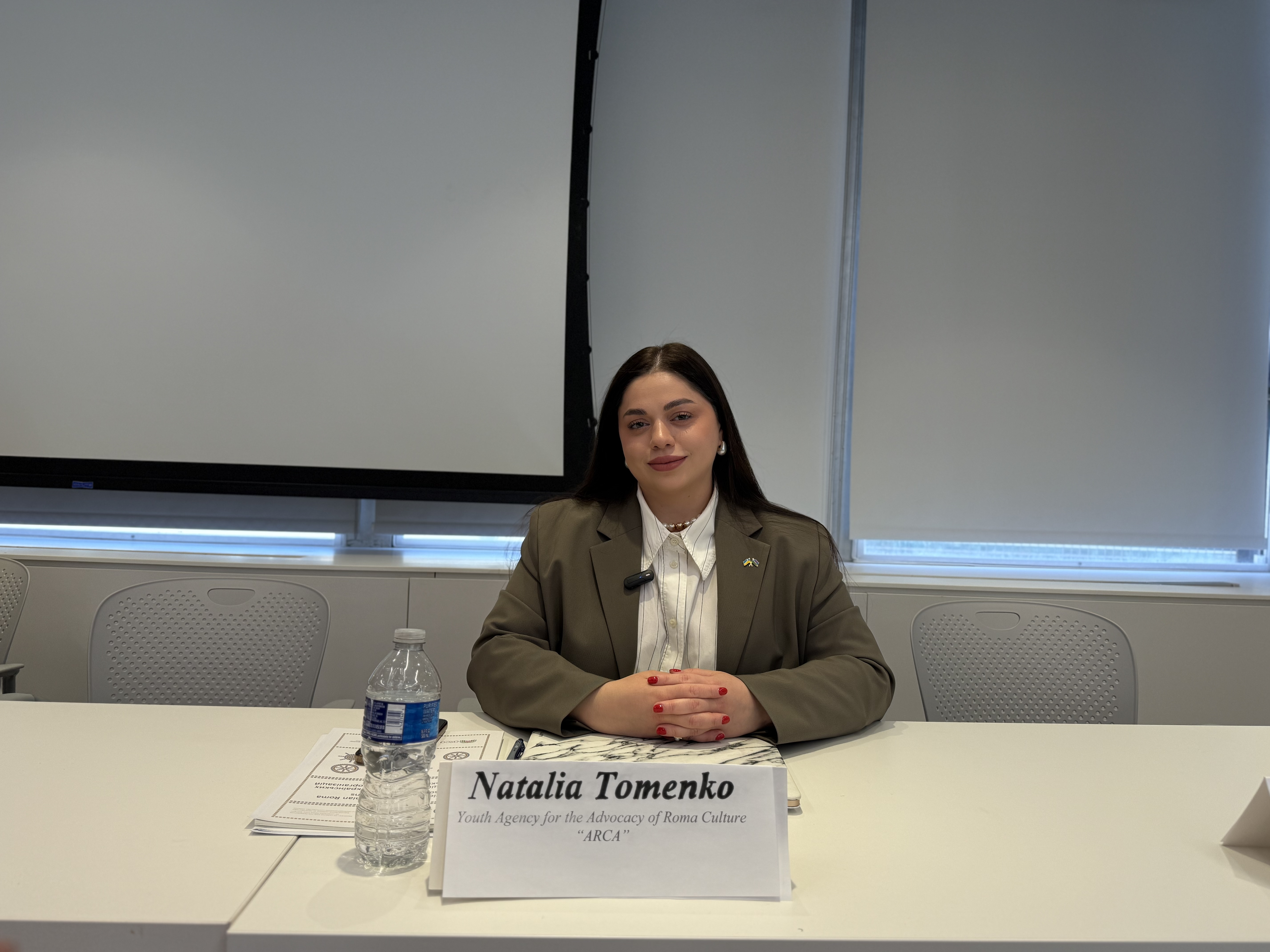 In the photo: Natalia Tomenko, Deputy Director of ARCA
In the photo: Natalia Tomenko, Deputy Director of ARCA
"My speech wasn’t part of the official program, but thanks to partnerships with other women's organizations, I was invited to join the discussion. It was important not just to be present, but to be heard", says Tomenko. “Next to me spoke a woman from the African American community and a representative from India — from the Dalit caste, the so-called 'untouchables'. We talked about shared issues: women’s education, access to basic needs, and rights violations. It was both important and interesting to hear their experiences and realize how deeply our challenges overlap" , she noted.
One of the key messages that Ukrainian Roma activists shared with the global audience was that the war in Ukraine has made Roma women even more vulnerable. Yet rather than giving up, they have come together, support one another, and work on long-term solutions.
"We show that Roma women are not just recipients of aid. We are capable of transforming the environment around us", Tomenko underlined.
Despite the many meetings held, the Ukrainian Roma activists noted that their participation remained mostly informal — and that needs to change. Next year, they are ready to come to New York with a clear agenda, their own side events, and to take part in official sessions.
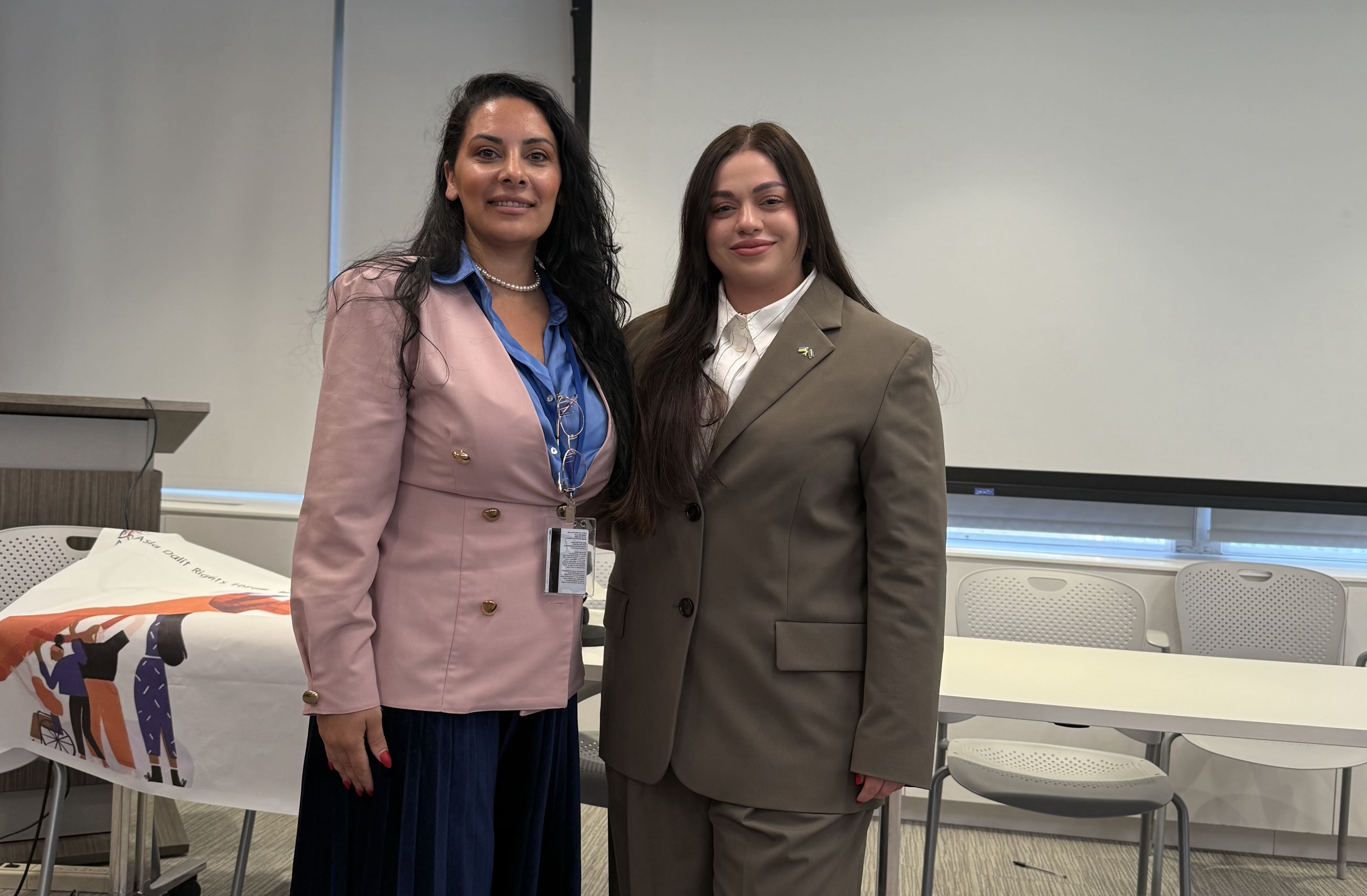 In the photo: Tereziya Rostas, human rights activist and founder of Welcoming Cultures/Care for Young People's Future; member of the Roma Feminist Gender Collective; Natalia Tomenko, deputy director of ARCA
In the photo: Tereziya Rostas, human rights activist and founder of Welcoming Cultures/Care for Young People's Future; member of the Roma Feminist Gender Collective; Natalia Tomenko, deputy director of ARCA
There were also disturbing notes at the event: due to political instability in the United States and increasing pressure on international institutions — particularly the UN — participants of the session voiced concerns about the future of such summits.
"We couldn’t even unfold our flags and take a photo because security would intervene and stop us. Under the new rules, this is not allowed, so that it isn’t perceived as a protest", says Nataliya Tomenko.
Despite the challenges, both speakers agreed on one thing: the trip to New York significantly strengthened the women’s movement in Ukraine.
"We were very well-coordinated. For the first time in a long while, Ukraine’s non-governmental sector was present as a real force. And I believe this will lay the foundation for broader participation in the Ukrainian Recovery Conference in Rome this year", says Angelika Bielova, head of the NGO Voice of Romni.
Her dream for the coming year is to obtain ECOSOC status for Voice of Romni — official recognition by the United Nations Economic and Social Council, which grants the right to participate in UN sessions, submit statements, and speak at international forums.
“I am very proud that this year I was able to bring the voices of Roma women from Ukraine to the international stage. And I am convinced that next time there will be even more of us, and our voices will be louder,” Angelika Bielova concluded.
Photos for the article provided by Natalia Tomenko
See also
- «Невидимі. Стійкість: минуле і сучасність ромів». Як зрозуміти історію ромів через візуальну культу
- Альфреда Марковська: історія життя і порятунку інших
- «Дивись і не забувай»: 15 років Dikh He Na Bister у Кракові
- ФОТОРЕПОРТАЖ: У Києві відкрили виставку про ромську історію та ідентичність
- «Відновлення пам'яті – роми у Варшавському гетто». Історична екскурсія у Варшаві
- PHOTO REPORT: Events commemorating the victims of the Roma genocide in Babyn Yar
- 2 серпня — Міжнародний день памʼяті жертв геноциду ромів
- Коли допомога — це більше, ніж ваучер
- Антициганізм поруч: як розпізнати упередження у звичних словах і жартах
- Стереотип замість культури: як TikTok спрощує ромську ідентичність
